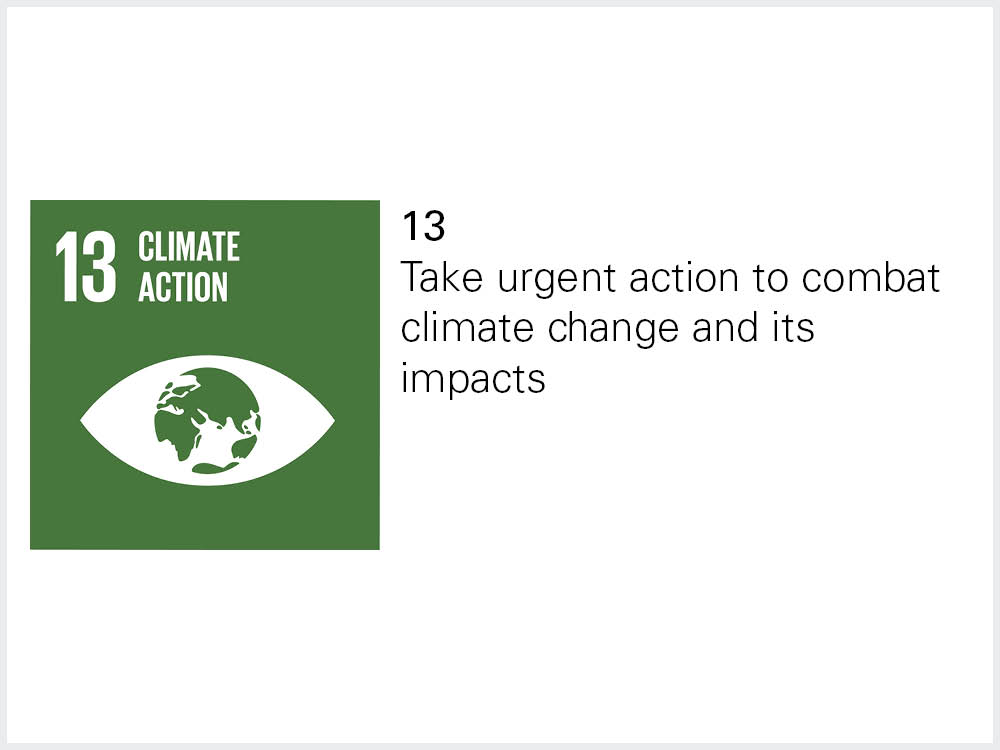Financial Investments

Sustainability does not end with buildings, research and teaching - the University of Basel's financial investments also have an impact on the environment and society. Accordingly, the University of Basel set itself binding investment guidelines as early as 2022 with the aim of minimizing the negative impact of its activities on the capital market. In 2023 and 2024, all criteria for environmental, social and governance (ESG) standards for financial investments specified in the investment regulations were met.
The University of Basel invests third-party funds raised for long-term research projects, and which are not used immediately, on the capital market. To this end, it has entrusted several banks with the management of the funds as mandate holders in the 2023/2024 reporting period. According to the contract, the banks are bound in their investment strategies to the sustainability guidelines of the University of Basel, which were drawn up in 2022 by the responsible investment committee. In addition to purely financial performance, the mandate holders also report on the development of sustainability indicators in annual reports. The financial institutions compare their development in this area with established benchmarks, such as the MSCI1 SRI (Socially Responsible Investment) Index. All banks outperformed this benchmark index in 2023 and 2024, meaning that the sustainable investment criteria were successfully implemented by the banks.
Evaluation approach ''best in class''
An important pillar of the University of Basel's guidelines is the so-called “best-in-class approach”. Instead of excluding entire sectors, preference is given to the most sustainable companies within a sector. This means that capital is specifically invested in companies that meet higher environmental, social and governance (ESG) standards than their competitors. The banks mandated by the University of Basel use the MSCI ESG rating to assess the sustainability of investments in bonds, equities and real estate funds. This rating assesses companies on a scale from AAA (leading) to CCC (weak) in terms of their sustainability performance. For equities or corporate bonds, factors such as CO₂ emissions, social responsibility or corporate governance are included in the rating and enable a well-founded assessment of the sustainability of an investment.
Lower CO₂ intensity of the portfolio
Another pillar of the University of Basel's sustainable investment strategy is the measurement of the so-called CO2 intensity of the portfolio. This involves measuring the CO2 emissions of a company in relation to the corresponding turnover.2 All mandate holders achieve a lower CO2 intensity with their chosen strategies than a comparable portfolio that is not based on ESG criteria. Due to different, bank-specific metrics, comparability between the mandate holders is only possible to a limited extent. As a key measure formulated in the university's climate strategy, standardizing the information provided should lead to a comparable quantification of the greenhouse gas emissions contained in the financial investments.
Exclusion from certain business activities
The University of Basel also specifies sectors that are excluded from investment. These include business activities such as coal mining and power generation, oil and gas extraction in the Arctic, oil sands mining, weapons production, tobacco production and sales, and gambling. The banks have complied with these requirements in the past two years.3
[1] MSCI Inc. (Morgan Stanley Capital International) is a US financial services provider based in New York City that offers financial services primarily for investment banking. The SRI Index takes into account the shares of companies that predominantly comply with climate-friendly criteria and adhere to a high minimum level of ESG (environmental, social and governance) criteria.
[2] In the case of government bonds, the CO2 intensity expresses the ratio between government CO2 emissions and the nominal gross domestic product of the respective country.
[3] If companies have only minor activities in these areas, investments can be made in them provided that the turnover from the excluded activities does not exceed 5% of total turnover.


